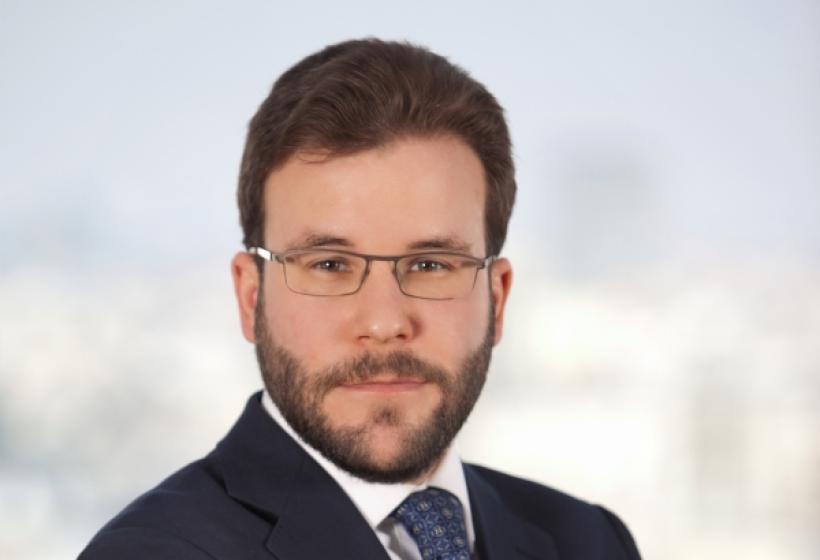They used to say „silence is golden”. I still remember a student in my tenth grade English class being told not to speak unless he could „improve on silence”. Nowadays, though, few of us do remain silent or, to put it another way, anonymous.
We log on to Facebook (or, for some, Google+) to tell a joke, to share pictures of something quirky we saw on the street, or to „check-in” at our favourite bars and restaurants. And, it’s immediately broadcast to our „friends” – you know, the couple hundred or even thousand people you know best (other than, of The Right against Self-Incrimination - Social Networking for Young Professionals course, those two friends who stubbornly refuse to join Facebook and who still haven’t heard what you think of James Bond's Skyfall).
For the most part, social networking has improved our lives. In my case, being an expat with family and friends spread out around the world, it makes keeping in touch far easier than the days of pen and paper or even simple email. It's personal mass media made easy!
But, social networking carries risks for the young professional. Image matters, and as the saying goes, "anything you say or do may be used against you..." even when it’s only on Facebook.
And, now, with Timeline and other cool features, it’s easier to dig around in the past - remember that 3:00 am post of you dancing drunk on the bar last year? No? Well, that's okay because Facebook does... and your friends can look back through the years on your Timeline with only a few clicks. (Shall we pause here so that some of you can go delete incriminating posts from 2009?)
And, about that "friend" thing. The Facebook definition is a bit broad, in my opinion. On Facebook, I am friends with a girl who kicked me in the shins in third grade but whom I haven’t seen in twenty- five years. If I had to make a list of my friends, she wouldn't be on it. (Not sure, why I would make such a list, but you get the idea...) But she is on my list of Facebook "friends".
See, back when Facebook first started, it wasn’t terribly sophisticated. Something of a Ford Model-T. It got you from A to B, but there weren’t any cupholders, heated seats, or even windows. You could add someone as your "friend" and that person got to see everything you did. End of story. Now, Facebook is more advanced. (Whether it has gone from being a Model-T to a Pinto or a Mustang is a matter of debate.) You can categorise friends, and you can limit which categories of friends can see which posts.
So, when you get angry after struggling with the printer (which has broken down for the tenth time) at 1:30 in the morning as you work on that urgent assignment that has kept you from your friends and family for the last two weeks, you can make sure that any colleagues and clients in your friend list won’t see the Facebook post about how much you hate your job or want to damage company property by throwing the printer, and maybe that stapler that always gets jammed, out the window.
But even with the improved controls, my view is that there's always the risk that something is said and done which will be held against you. So, how does the young professional manage that risk no matter how remote? Well, in my view, there’s a couple of ways to approach social networking and a few simple rules.
First - the approaches. Some people I know add everyone they meet as a friend on Facebook and either (1) don’t post anything terribly personal so that their Facebook acts like a big contact book or (2) manage their friend lists to ensure that 1:30 am post about throwing the printer out the window isn’t seen by colleagues or clients.
Personally, I am not a fan of either approach. The former doesn’t fit with my life as an expat with friends and family abroad – I like being able to use Facebook to post quirky and personal updates. What’s the fun in Facebook if you can’t tell the occasional joke or comment about politics or post a goofy photo?
And, the latter approach seems laborious and risky to me. I don’t think it’s terribly convenient or easy to manage a bunch of lists and to always be careful about posting to the right groups, especially if you’re one of those people who likes to post photos from your favourite pub after you have had a few.
Even if you think you can get the lists and the posting right, there’s still a risk that someone in your life shares information across lists - Scene: Friday night at the pub. "Hey, K-P, hilarious post about that jerk who blocked your car last week. Did you really put sugar in his gas tank, or were you just kidding?", says Brad, your friend since high school who is on your ‘close friends’ list and who saw your irate Facebook post. "What post?", asks Steve, the new guy who works for a client, who is on your 'acquaintances' list, who didn't see your irate Facebook post, and who blocked your car at the last week by accident...
So, that brings me to the third approach – my personal favourite. If you are a young professional, get yourself a LinkedIn account, and keep Facebook (or Google+) for those personal ramblings that you would not want shared with colleagues or clients, whether by accident or otherwise.
But, even if you do adopt this more conservative approach, the internet has this wonderful way of not forgetting what you have done or said. So, again, "You have the right to remain silent. Anything you say or do may be used against you...". Just because the internet at times feels anonymous, like you are speaking into a void, don’t say or do anything which you could not defend to your boss or an image-conscious client.
That doesn’t mean that you should lead a more boring life on Facebook - we have all, at one time or another, had an embarrassing picture posted or mused publicly about throwing a printer out of a window – but there’s always a fine line which once crossed can lead to consequences.
So, some simple rules – keep it decent; everything in moderation; and if you're going to post a borderline joke, make sure everyone knows you're joking.
Kevin-Paul Deveau is a Senior Associate in the International Finance Group of Clifford Chance and is currently on secondment to Bucharest office. Kevin-Paul is an English solicitor, and his practice encompasses a wide range of transactions, including acquisition finance, project finance, general corporate lending, structured finance and restructuring, with a particular emphasis on central and eastern Europe. Prior to joining Clifford Chance, Kevin-Paul worked in the business and energy groups of a leading Canadian law firm and on secondment at TransAlta Corporation, a energy company based in Calgary, Alberta, Canada. Kevin-Paul obtained a BA (Hons) and a combined JD/MA from the University of Toronto.





